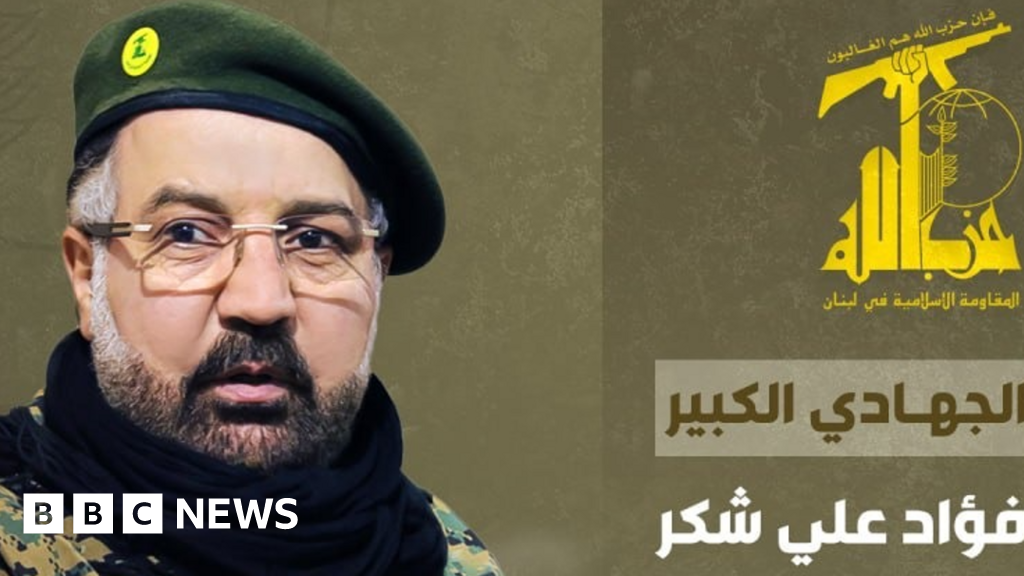Hezbollah has confirmed one of its senior military commanders was killed in an Israeli air strike in Beirut, the capital of Lebanon.
Late on Wednesday, the Iran-backed group said Fuad Shukr’s body had been found in the rubble of a building that was hit on Tuesday.
Four other people were killed in the strike, including two children. Earlier, the Israeli military said Shukr had been the target of an “intelligence-based elimination”.
It said the strike was a response to a rocket attack that killed 12 people in the Israeli-occupied Golan Heights on Saturday, which Israel says the commander helped plan.
Hezbollah has denied having any involvement.
Fuad Shukr, who was in his early sixties, is believed to be a key military adviser to Hezbollah leader Hassan Nasrallah.
The strike targeted a building in Haret Hreik, a part of the Dahiyeh suburb of Beirut.
It is a fortified, densely populated area. Dahiyeh itself is surrounded by Hezbollah checkpoints.
The children killed in the air strike were a 10-year-old boy and a his six-year-old sister. Shukr will be buried on Thursday, the statement said.
Lebanon’s Prime Minister Najib Mikati called the attack a “criminal act”.
An Israeli reaction to Saturday’s rocket attack on the Golan had been widely expected. The country’s security cabinet had authorised Prime Minister Benjamin Netanyahu to decide how to retaliate.
A retaliation from Hezbollah is now almost certain. In the past, the heavily-armed, Iranian-supported group has responded to the killings of senior members by firing barrages of rockets into Israel.
Shortly before Hezbollah’s announcement, Israeli Prime Minister Benjamin Netanyahu gave a televised speech acknowledging that “challenging days lie ahead”.
He added: “Since the strike in Beirut there are threats sounding from all directions. We are prepared for any scenario.”
Early on Wednesday, the political leader of the Palestinian group Hamas – which is also backed by Iran – was killed in a attack in the Iranian capital.
Israel has not commented, but it has promised to destroy Hamas following the 7 October attack on southern Israel, which killed around 1,200 people.
Fears of a regional war have led to international calls for all sides to show restraint.
There had been regular fighting between Hezbollah and Israel but hostilities have escalated since Hamas’ attack on Israel on 7 October.
Hezbollah – which supports Hamas – opened up a limited second front in Israel’s north, and the two sides have been exchanging fire ever since.
And while so far they have stopped short of an all-out war, near daily attacks have left communities in Israel and Lebanon devastated.

